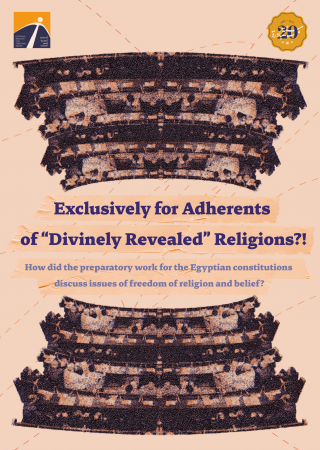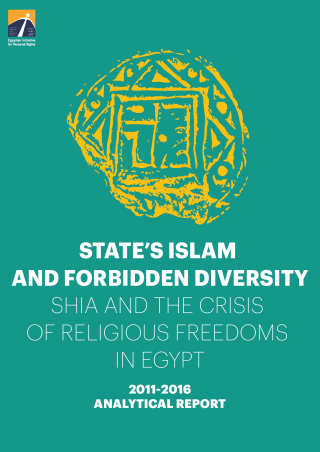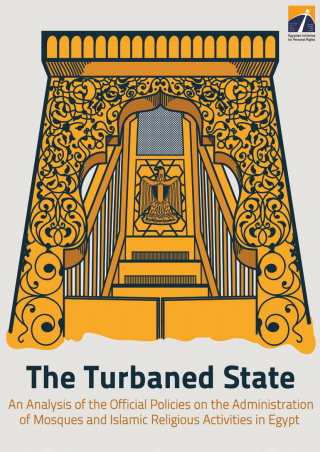Files: Al Azhar
Despite this, Egyptian constitutions prior to 2012 did not use the term “divinely revealed religions” nor was the concept constitutionally linked to the limits of reli- gious freedoms in the country. The pre-2012 constitutions had been satisfied with guaranteeing freedom of belief and the freedom to practice religious rituals in a manner that does not conflict with public order and public morals.
EIPR also warns of the danger of using Article 27 of the Law to Combat Electronic Crimes issued in 2018 to target the same spectrum of non-traditional ideas and trends, under the pretext of “misuse of social media.” Last June as well.
The Egyptian Initiative for Personal Rights issued an analytical report today titled “Restricted Diversity in State Religion: The Case of Religious Freedom of Shia Egyptians.” The report documents and analyzes developments
The Egyptian Initiative for Personal Rights issued an analytical report today titled “Restricted Diversity in State Religion: The Case of Religious Freedom of Shia Egyptians.” The report documents and analyzes developments of the status of Shia Egyptians as a case study of the crisis of Muslim citizens adhering to sects other than the dominant state-sanctioned one. It looks at official religious policies that restrict religious diversity in Islam, incitement to hatred, discrimination, violence against Shia, and violations of other human rights from January 2011 to May 2016.
A report by the Islamic Research Academy, al-Azhar University, had attacked el-Beheiry’s program titled “With Islam” broadcast on al-Kahira wa-Nas, which discussed some elements of Islamic heritage critically.
For centuries, the Egyptian state has maintained policies based on the model of the Caliphate in its administration of mosques. Policies of all modern political administrations employed different authoritarian tools against challengers to teachings of the official religious institutions thus infringing on the rights of Muslims who don’t wish to follow the state’s interpretation of religion.
In the aftermath of the January 2011 Revolution, the controversy concerning the need for a law governing constructing places of worship in Egypt was renewed.
Policies of all modern political administrations employed different authoritarian tools against challengers to teachings of the official religious institutions thus infringing on the rights of Muslims who don’t wish to follow the state’s interpretation of religion.
The Egyptian Initiative for Personal Rights (EIPR) is concerned by recently issued Law 51/2014 regulating sermons and religious lessons in mosques, seeing in it a continuation of policies designed to curb freedom of religion and enforce a legal mo






